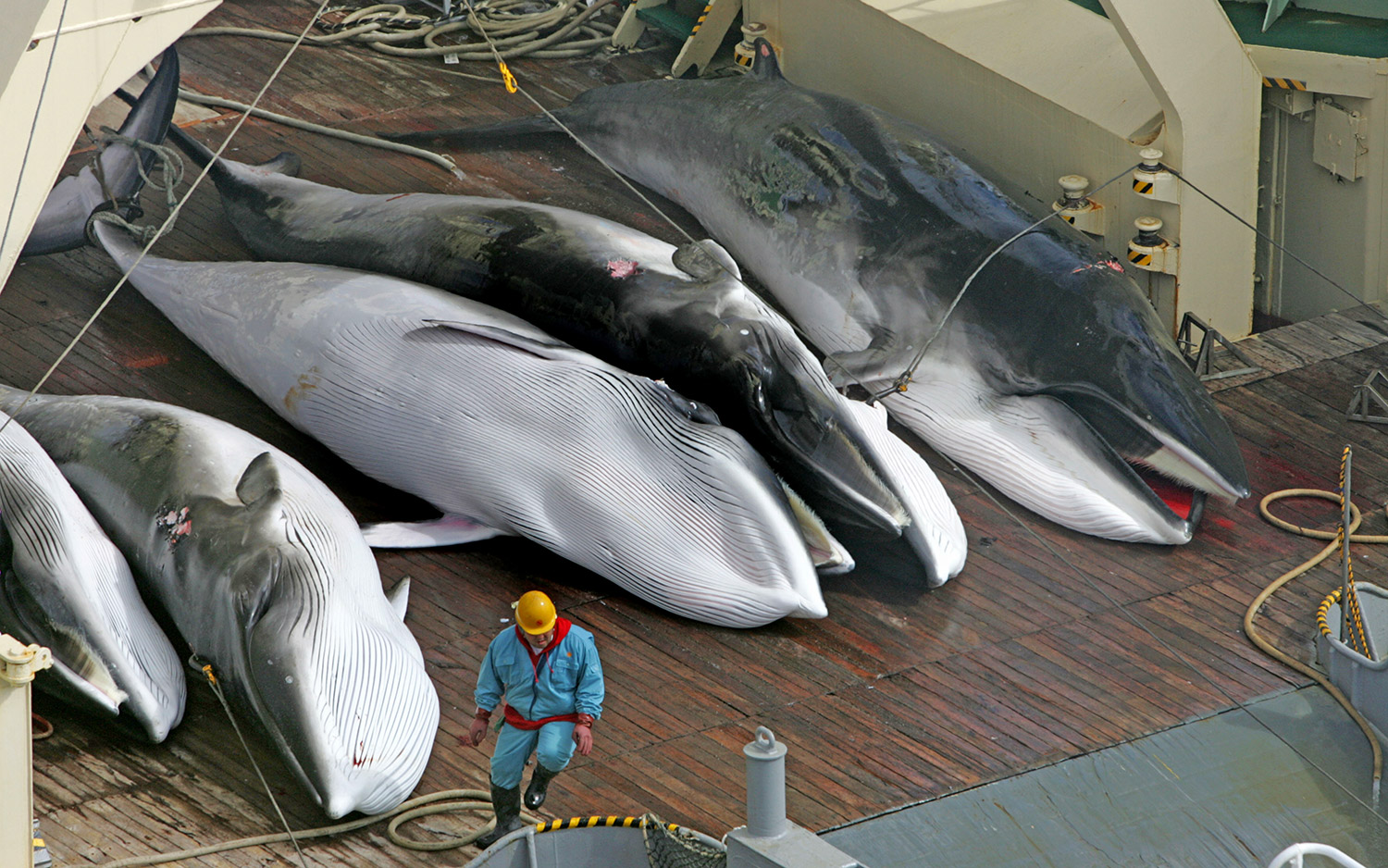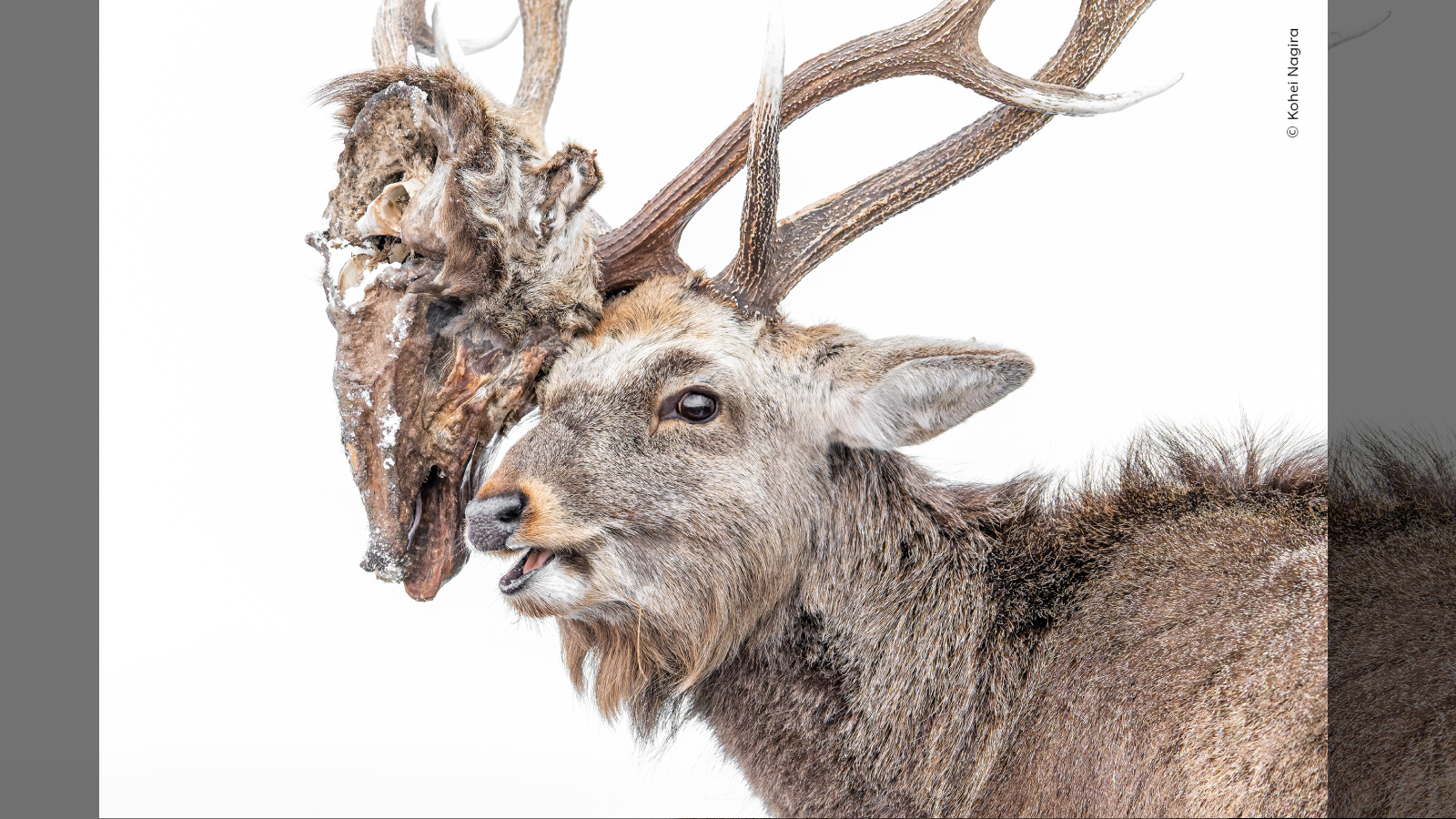Japanese Whalers Killed 122 Pregnant Whales and 114 Babies Last Summer

Get the world’s most fascinating discoveries delivered straight to your inbox.
You are now subscribed
Your newsletter sign-up was successful
Want to add more newsletters?

Delivered Daily
Daily Newsletter
Sign up for the latest discoveries, groundbreaking research and fascinating breakthroughs that impact you and the wider world direct to your inbox.

Once a week
Life's Little Mysteries
Feed your curiosity with an exclusive mystery every week, solved with science and delivered direct to your inbox before it's seen anywhere else.

Once a week
How It Works
Sign up to our free science & technology newsletter for your weekly fix of fascinating articles, quick quizzes, amazing images, and more

Delivered daily
Space.com Newsletter
Breaking space news, the latest updates on rocket launches, skywatching events and more!

Once a month
Watch This Space
Sign up to our monthly entertainment newsletter to keep up with all our coverage of the latest sci-fi and space movies, tv shows, games and books.

Once a week
Night Sky This Week
Discover this week's must-see night sky events, moon phases, and stunning astrophotos. Sign up for our skywatching newsletter and explore the universe with us!
Join the club
Get full access to premium articles, exclusive features and a growing list of member rewards.
Japanese research vessels harpooned, killed and necropsied 333 Antarctic minke whales during an annual hunt last summer — and 122 of those whales were pregnant.
The expedition, reportedly mounted for "scientific research," also resulted in the slaughter of 114 immature whales, according to a report of the hunt released by the International Whaling Commission.
According to the report, researchers set out to acquire data on the age, size and stomach contents of minke whales in the South Ocean between Australia and Antarctica. This involved shooting the whales with grenade-tipped harpoons (a controversial killing method that results in instant death only 50 to 80 percent of the time), hauling the slain whales aboard a research vessel and cutting them apart on-site.
Killing the whales in this fashion was necessary, the researchers wrote, as "age information can be obtained only from internal earplugs and therefore only through lethal sampling methods."
Despite Japan's claims that continued whale hunts like these are purely scientific, the country also allows whale flesh to be sold in markets and restaurants and ultimately plans to revive its commercial whaling industry, The Sydney Morning Herald reported. This potential profit motive — coupled with recent footage of Japanese vessels slaying whales in an Australian whale sanctuary — has resulted in international condemnation of the country's brutal hunting practices.
The latest report on the 333 murdered minke whales is a sad indictment of Japan's whale hunt, Alexia Wellbelove, the senior program manager for Humane Society International, told The Herald. "It is further demonstration, if needed, of the truly gruesome and unnecessary nature of whaling operations, especially when non-lethal surveys have been shown to be sufficient for scientific needs."
The International Court of Justice ruled Japan's Antarctic whaling program illegal in 2014. However, instead of canceling the program, Japan withdrew its recognition of the court as an arbiter of whaling disputes, and resumed hunting in 2015, The Maritime Executive reported.
Get the world’s most fascinating discoveries delivered straight to your inbox.
According to The Sydney Morning Herald, Japan plans to catch an additional 4,000 whales in the next 12 years.
Originally published on Live Science.

Brandon is the space / physics editor at Live Science. With more than 20 years of editorial experience, his writing has appeared in The Washington Post, Reader's Digest, CBS.com, the Richard Dawkins Foundation website and other outlets. He holds a bachelor's degree in creative writing from the University of Arizona, with minors in journalism and media arts. His interests include black holes, asteroids and comets, and the search for extraterrestrial life.
 Live Science Plus
Live Science Plus





